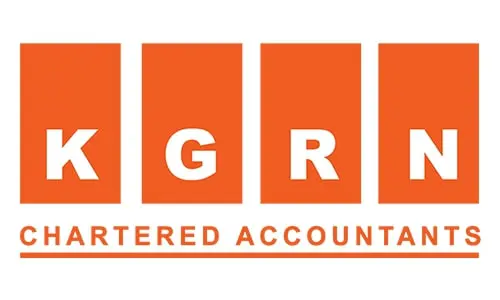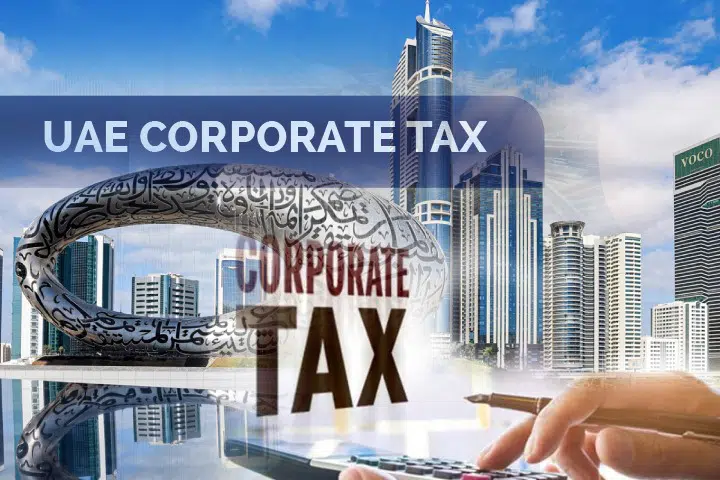The United Arab Emirates will impose a 9% corporate tax beginning next year. The United Arab Emirates has become a popular destination for multinational corporations due to its tax-free status. It has, however, drawn international attention due to its lack of transparency and the presence of tax-evading businesses.
As a result, the UAE is attempting to align itself with the global standard for business accommodations. In order to achieve this goal, the government will impose a 9% company tax beginning June 1, 2023.
This corporate tax in UAE will only be levied on mainland businesses with a profit of more than 375,000 Dirhams, or approximately USD 102,000 in annual revenue.
Businesses that operate in free zones or generate less than 375,000 Dirhams would continue to be exempt from the law. Officials from the government claim they were motivated by a desire to help small businesses and entrepreneurs.
“As a leading jurisdiction for innovation and investment, the UAE plays a critical role in assisting enterprises to grow, both locally and internationally,” said Younis Haji Al Khoori, Ministry of Finance undersecretary. ”
A competitive, best-in-class corporate tax environment, combined with the UAE’s extensive network of double tax treaties, will further solidify the UAE’s position as a world-class business and investment destination.”
What factors played a part in making this decision?
The Gulf Cooperation Council is a group of 20 major nations with the ambitious goal of establishing a global minimum tax of 15 percent as the basic levy at some point in the future. Their goal is to stifle international competition among Middle Eastern countries to provide reduced tax rates, which would otherwise benefit the region.
So far, the UAE has agreed to levy a corporate tax of 9 percent on multinational corporations operating in the country. Currently, five more nations in the Gulf Cooperation Council have built corporate tax systems and are levying the corporation tax.
A corporation tax rate of 9 percent may be high in the United Arab Emirates, but it is the lowest in comparison to the other major Middle Eastern nations. A corporation tax rate of 10 percent is applied in Qatar, followed by Kuwait and Oman, both of which have a tax rate of 15 percent applied to their businesses.
Corporate tax rates in Saudi Arabia are the highest in the Middle East, at 20 percent, making it the most expensive place to do business in the region.
Because of the low corporate tax rate, the United Arab Emirates will keep its low-tax status. At the same time, the country’s image as a tax haven for corporations that engage in abusive tax procedures would be damaged. Work on the country’s long-term plan to move the country’s economic focus away from the oil and gas industry will continue in the coming months.
“The United Arab Emirates is working hard to diversify its income sources away from oil, and a company tax is a step in the right direction.” According to Khatija Haque, Emirates NBD’s senior economist, the country’s tax rate remains low in comparison to other countries across the world.
What actions has the UAE taken in the preceding years?
A regular 5-percentage-point value-added tax (VAT) was levied on the vast majority of products and services in the UAE in 2018. In particular, the worldwide branches of banks that were still in operation were subject to a 20 percent levy, making the situation even worse.
At the emirate level, companies having concession agreements in the oil and gas sector were obliged to pay a tax of up to 55 percent, which could go as high as 100 percent. When they first came to the nation, they had one goal in mind: they intended to damage the country’s image as a corporate tax haven. Later, they placed a 1 percent customs duty on all imported goods.
Furthermore, these changes only apply to enterprises operating on the mainland. Free zones were and remain free of all federal, state, and local taxes and levies. These taxes are only applicable to corporations and their earnings. Personal earnings remain tax-exempt.
Employees are not required to pay taxes on their earnings, and owners are not required to pay taxes on profits received from their investments. Profits from other sources that are not generated by a corporation or a firm are not taxable. Capital gains from investments and real estate, for example, are not taxable.
“It was only a matter of time until the corporate tax in UAE was introduced in line with the other Gulf Cooperation Council countries,” said Izzat Dajani, CEO of Dubai-based IMCapital Partners Ltd and a former senior banker at Goldman Sachs and Citigroup. In terms of international norms, the 9 percent base values that have been mentioned are very reasonable.”
Is there a set of worldwide guidelines?
From 2023 onwards, the Organization for Economic Cooperation and Development (OECD) proposes a 15 percent global minimum tax starting in all countries. In addition, the United Arab Emirates aims to boost the basic corporate tax rate to 15 percent in the near future.
Foreign competition and the UAE’s capacity to provide favourable rates to multinational corporations will be reduced as a result of the ruling.
A worldwide corporate minimum tax is, by definition, a standard tax rate that will be applied to all company income, regardless of where the money is generated. There are 136 countries and jurisdictions that are now committed to the implementation of a 15 percent basic corporate tax rate.
In order to discourage countries from having competitive tax rates that allow corporations to shift profits around, the Organization for Economic Cooperation and Development (OECD) devised this framework in 2001.
The United Arab Emirates hoped to grow its non-oil economy by attracting investors and enterprises with low tax rates. Those efforts failed. For failing to do more to prevent terrorist financing and money laundering, the administration has been criticised.
These most recent revisions, on the other hand, will ensure that these types of claims are no longer valid.
Prospective investors and businesses may be deterred from establishing themselves in the UAE as a result of the rising taxes. The United Arab Emirates, on the other hand, has reduced its ownership limits until the year 2020. The UAE government amended its present laws and regulations to the point where businesses no longer need an Emirati stakeholder to be successful.
All businesses operating outside of free zones were required to have a local sponsor who owned at least 51 percent of the firm in order to operate legally. They also changed their weekend arrangement to include both Saturday and Sunday days in order to better comply with the international standard.
“I don’t think it will have a significant influence on the UAE’s ability to attract investors,” said Mohamed Abu Basha, director of macroeconomic research at investment bank EFG Hermes in Cairo.
First and foremost, enterprises operating in free zones will continue to benefit from tax benefits and will be exempt from the judgement. Secondly, the vast majority of other Gulf countries already levie a corporate income tax on multinational corporations doing business in the region, with Saudi Arabia levied a 20 percent tax, Oman levied a 15 percent tax, and Qatar levied a 10 percent tax.”
What does this entail for already-established companies?
In the UAE, firms operating in free zones, as well as individuals earning less than 375,000 Dirhams, are exempt from paying income taxes. Businesses on the mainland, on the other hand, that earn more than 375,000 Dirhams (USD 102,000) are required to pay the 9 percent corporation tax.
Tarek Fadlallah, head of Nomura Asset Management’s Middle East division, stated, “The implementation of corporation tax will take effect in June 2023, giving listed firms the time to prepare.” However, it is unavoidable that this will have an influence on future net profit projections.”
According to the official news channel WAM, “the corporate tax system in UAE was created to integrate best practises from throughout the globe and reduce the compliance burden on businesses.” With a few exceptions and amendments, corporate tax will be levied on the profits of UAE-based businesses as reported in their financial statements prepared in accordance with internationally recognised accounting standards.
It will apply to all businesses and commercial activities with the exception of natural resource extraction, which will continue to be taxed at the Emirate level.” The corporate tax in UAE will apply to all businesses and commercial activities with the exception of natural resource extraction, which will continue to be taxed at the Emirate level.”
Companies operating on the UAE’s mainland will not be startled by the introduction of a corporate tax, since the government has been discussing the introduction of a corporation tax for many years. Following the announcement, companies will have one and a half years to prepare for the changes.
Several UAE experts believe that this decision is sensible and practical since it removes the UAE’s reputation as a tax haven while while keeping the tax rate at a low level.
Will the amendment deter foreign investors and entrepreneurs from relocating to the United Arab Emirates as a result of the change?
If you want to relocate to the Middle East or start a business, the United Arab Emirates is still the finest option. Furthermore, as previously said, the tax rate of 9 percent is fairly low and applies only to businesses with annual sales of 375,000 Dirhams (USD 102,000) or more in the UAE.
Companies who want to conduct their operations on a global rather than a local scale may continue to benefit from free zones, which are exempt from corporate taxation in UAE.
The income of a corporation is not subject to the corporate tax. If you earn more than 375,000 Dirhams (USD 102,000) in salary, investment gains, dividends, or other sources of income, you will not be subject to taxes on the additional income.
This means that investors who intend to relocate to the UAE will not be subject to the new 9 percent corporate tax imposed by the government.
Major rivals, such as the United States, have a stunning tax rate of 27 percent, although European Union states have an average tax rate of 20.7 percent, according to the International Fiscal Year. By maintaining its competitive edge, the UAE’s tax rate of 9 percent is able to attract investment and attract foreign capital.
The fact that there are no better alternatives means that this move will have only a modest impact on the choice of foreigners intending to start enterprises in the United Arab Emirates.
Personal taxes, according to one analyst, will be implemented soon since the UAE has a big population of ex-pats who consider the UAE to be a good place to live in retirement.
Please contact us if you need further information or support from one of our trained business professionals.







